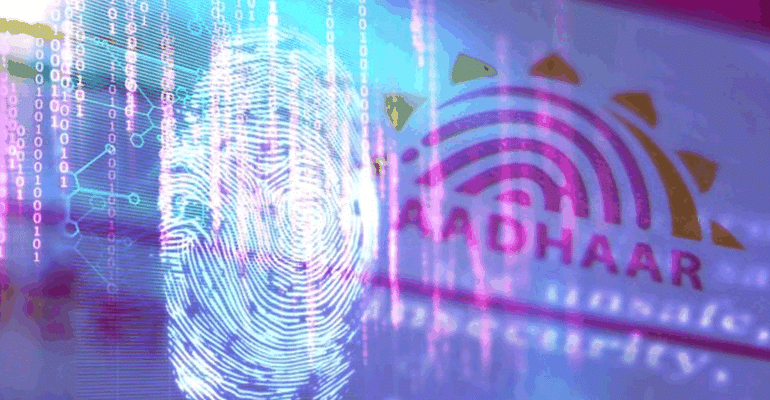On Wednesday, the Supreme Court of India upholds constitutional validity of Government’s flagship – Aadhaar Scheme but struck down some of the provisions. This has placed new limits on how the biometric data of more than a billion citizens can be stored or used.
It will be a relief for many as they won’t have to link their cards to private entities like mobiles, bank accounts for authentication purposes and the activists are now raising the concerns as to how the delinking process will happen.
Hailing the decision by SC, Union finance minister Arun Jaitley said that this scheme will help the government save Rs. 90,000 crore per year with targeted delivery of welfare programmes.
Earlier this year, a report by the Right To Food (RTF) campaign, an advocacy group mentioned that 14 people were allegedly starved to death in Jharkhand over 10 months after being denied rations because they didn’t have Aadhaar cards.
The issues related to Aadhaar grabbed the spotlight when numerous activists and media outlets reported the vulnerabilities in the technology regarding the storing and usage of data. Also, according to PTI, the Centre for Internet and Society (CIS) report claimed that from four government portals, Aadhaar numbers and personal information of as many as 135 million Indians could have been leaked.
While delivering the 1,448-page verdict, Justice Kumar Sikri said, “Aadhaar empowers the marginalized section of the society and gives them an identity.”
However, the judgment also mentioned that “there needs to be balancing of two competing fundamental rights, right to privacy on one hand, and right to food, shelter, and employment on the other hand.”
Further, in 3 separate tweets, a human rights organization Amnesty India said- “Making an Aadhaar card a prerequisite to access essential services and benefits can obstruct access to several constitutional rights, including the rights of people to food, healthcare, education, and social security. The government has a legal and moral obligation to ensure that nobody is denied their rights simply because they don’t have an Aadhaar card. The government must now address legitimate concerns about privacy, surveillance, and breaches of the Aadhaar database, especially since India does not have a data protection law.”
Making an Aadhaar card a prerequisite to access essential services and benefits can obstruct access to several constitutional rights, including the rights of people to food, health care, education and social security. (1/3)#AadharVerdicthttps://t.co/LFXxFsd7dK
— Amnesty India (@AIIndia) September 26, 2018
The government must now address legitimate concerns about privacy, surveillance and breaches of the Aadhaar database, especially since India does not have a data protection law. (3/3)
— Amnesty India (@AIIndia) September 26, 2018
Aadhaar will be needed in:
- Linking Pan Card with Aadhaar
- Filing income tax returns
- Availing Government welfare schemes and subsidies
Aadhaar will not be needed in:
- Opening a bank account
- Getting a sim card or shopping online
- Getting admission in a school
- Appearing for CBSE, UGC and NEET examinations
For privacy activists, this program this is an incredible victory. A lawyer of the petitioners, Apar Gupta said that “the court only commented on constitutionality, but during this hearing, the public policy benefits of Aadhaar have also been called into question.”


